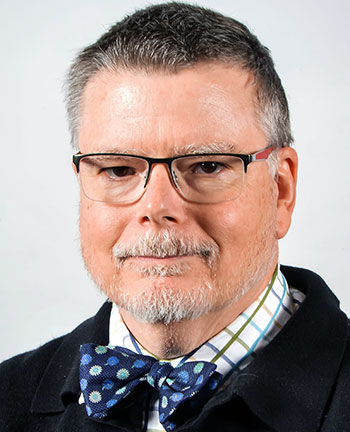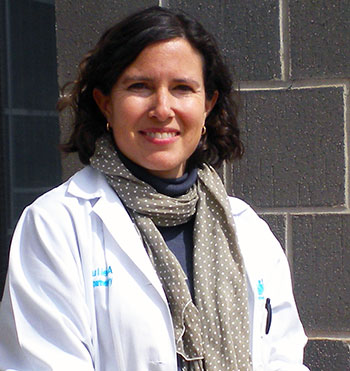Palliative Care Master's Degree
By Tonia Twichell
(May 2016) The nation’s healthcare providers are ill-prepared for the oncoming “silver tsunami” - 75 million baby boomers entering their senior years needing individualized care and help
 “Workforce estimates suggest that we will need 10,000 to 15,000 providers to meet
“Workforce estimates suggest that we will need 10,000 to 15,000 providers to meet
Bailey, who came to Colorado in 2014 after two decades in palliative care at the University of Alabama Birmingham, met with Anschutz Medical Campus leaders to create and fund the nation’s first interprofessional master of science in palliative care degree for physicians, pharmacists, nurses
Designed by the CU Graduate School for the mid-career provider, the first cohort of about 25 students starts this fall. The Interprofessional Master of Science in Palliative Care will prepare providers to become Palliative Care Community Specialists and focuses on advancing clinical knowledge, using evidence in building palliative care practice and communication skills. An Interprofessional Palliative Care Certificate will also be available by completing the first 12 credit hours.
Palliative care helps patients with serious or life-limiting illness and their
“All clinicians who care for those with serious illness should have a basic level of knowledge of palliative care,” says Jean Kutner, MD, MSPH, chief medical officer of
Research shows palliative care can extend life and reduce pain and depression, says Kutner, former president of the American Academy of Hospice and Palliative Medicine. Medicare and Medicaid now cover patient-doctor conversations about end-of-life care, and the U.S. Department of Veterans Affairs allows hospice care in conjunction with disease treatments, such as chemotherapy, Bailey says.
“We’ve known for 20 years that most people say that if they had a terminal illness they would want to be cared for at home. But we also know that the number of people who die in hospitals or some other institutional setting has not decreased in the last 20 years,” he says. “Providing people and families with options and expertise so they can understand their preferences and options when suffering from life-limiting illness can be a really hard thing to do.”
 Julie Berk, MS, a physician assistant at Kaiser Permanente who graduated from CU Child Health Associate/Physician Assistant Program, plans to join the first cohort. Like many providers, she learned about palliative care on the job.
Julie Berk, MS, a physician assistant at Kaiser Permanente who graduated from CU Child Health Associate/Physician Assistant Program, plans to join the first cohort. Like many providers, she learned about palliative care on the job.
“One area of satisfaction I’ve had in my career is being able to sit with families and be honest about their case, encouraging them to be thoughtful about health care decisions,” says Berk, who has worked in neurology and neurosurgery units. “Some physicians just want to treat and treat without a discussion whether continuing is harmful to the patient. We need to ask what is best for
Bailey’s path to palliative care came about serendipitously in 1989 when a nurse and social worker in his West Virginia practice asked him to be the medical director of a hospice program.
“They said ‘You won’t have to do much. Maybe prescribe something from time to time, but we’ll be running this.’”
Within a few
“I was nervous,” he says. “I had no training in palliative care or pain management. I found the experience to be very
The master’s degree program will offer remote and onsite learning to practitioners around the country and will include instruction in the first two levels of palliative care starting with pain management and goals of care. Students will be linked to tertiary care experts, who provide care for the most complex cases.
Bailey would like to expand the program to include a master’s degree program for students from non-medical fields of spiritual care, psychology, communications
Kutner hopes the master’s degree will encourage graduates to become leaders in their fields – regardless of their position or profession.
“I hope they become the champions in their own organization,” she says.
Berk says palliative care education will change her own career and the future of medicine.
“It’s much more difficult to die now because of advances in medical care, but that’s so senseless when it comes to quality of life. Quality has to be answered differently by different people, and that’s where medical professionals with training can help explore the question.”